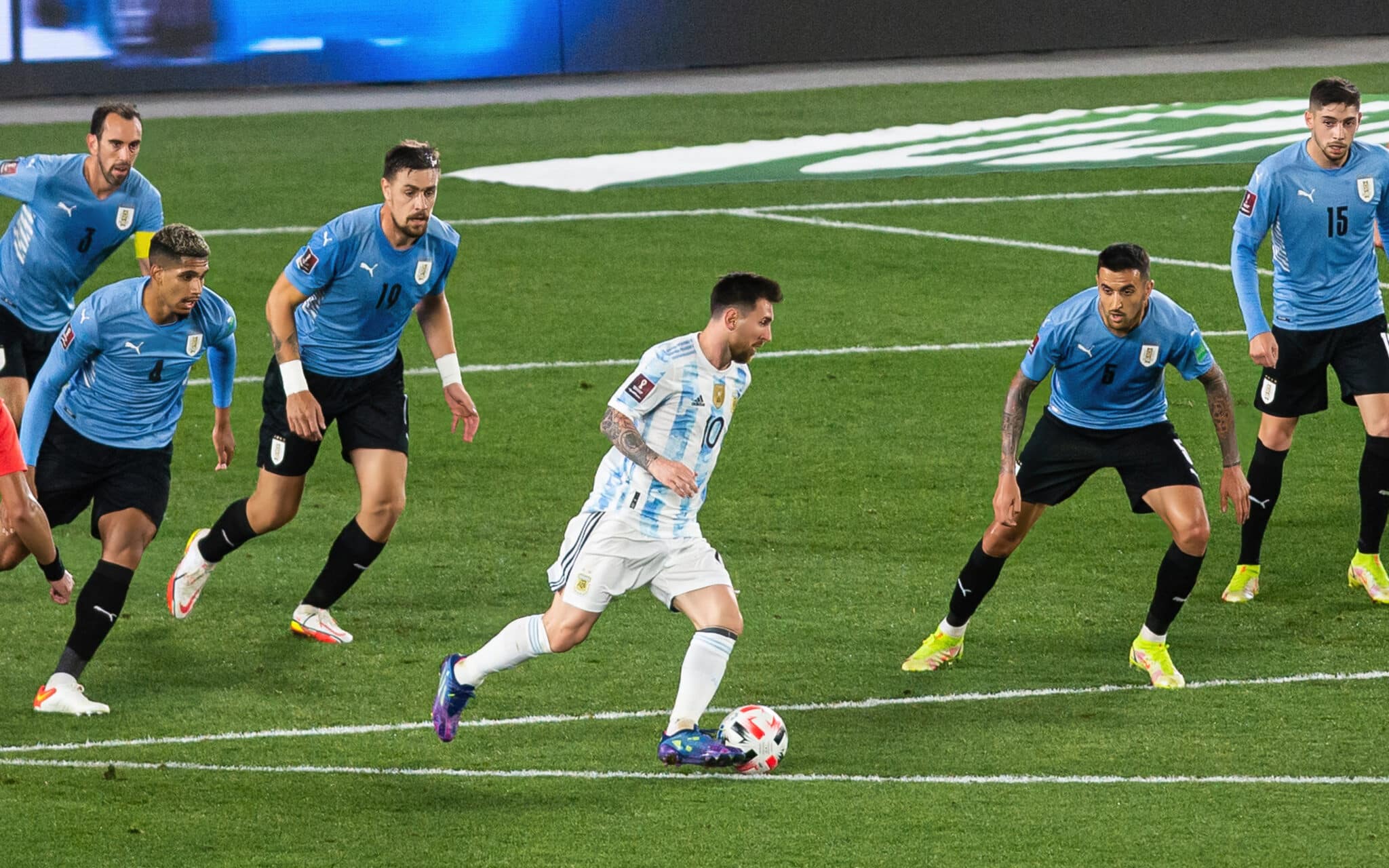World Cup Rivalries That Define Football
World Cup Rivalries That Define Football
Blog Article

Football, often referred to as the beautiful game, is made even more thrilling by the fierce rivalries it fosters, especially on the grandest stage of them all—the FIFA World Cup. These rivalries go beyond mere matches; they encompass national pride, historical conflicts, passionate fanbases, and memorable moments that become etched in history. Let’s explore some of the most iconic rivalries in World Cup history that have come to define international football.
1. Brazil vs. Argentina: The South American Clasico deposit togel 5000
Perhaps no rivalry encapsulates passion, emotion, and history quite like Brazil vs. Argentina. Known as the "Clásico Sudamericano," these two football powerhouses boast some of the greatest talents ever to grace the pitch—Pelé, Maradona, Ronaldo, Messi, to name just a few. Their encounters in the World Cup arena have been pivotal, filled with unforgettable drama and unparalleled skill.
Key Matches:
1978 (Argentina 0-0 Brazil): Argentina hosted and eventually won the tournament amidst controversy. This group-stage encounter heightened tensions with a goalless yet fiery match.
1982 (Brazil 3-1 Argentina): Featuring stars like Zico and Maradona, Brazil triumphed decisively, marking a memorable moment in football history.
1990 (Argentina 1-0 Brazil): Argentina, led by Maradona's brilliance and Claudio Caniggia’s goal, stunned Brazil in the knockout stages.
This rivalry epitomizes South American football culture—intense, skillful, and emotionally charged.
2. Germany vs. Netherlands: A Historic European Feud
The Germany-Netherlands rivalry transcends football, rooted in historical conflicts, notably from World War II, that amplify its intensity. Matches between these two nations are fiercely contested, brimming with physicality and tactical sophistication.
Key Matches:
1974 Final (West Germany 2-1 Netherlands): Johan Cruyff's famed “Total Football” faced off against Franz Beckenbauer's tactical discipline, with West Germany edging out victory at home.
1990 Round of 16 (West Germany 2-1 Netherlands): Known for Rijkaard spitting on Rudi Völler, symbolizing the raw animosity between the two teams, Germany advanced and later clinched the title.
The animosity between these two sides fuels captivating encounters, adding layers of complexity and significance to every match they play.
3. England vs. Argentina: A Tale of Controversy
Few rivalries have produced as many headlines or controversial moments as England and Argentina. Deeply intertwined with political tensions dating back to the Falklands War, their World Cup clashes remain historic spectacles.
Key Matches:
1986 Quarterfinal (Argentina 2-1 England): Infamous for Diego Maradona’s "Hand of God" and his subsequent "Goal of the Century," Argentina prevailed in a match that became legendary.
1998 Round of 16 (Argentina 2-2 England, Argentina wins on penalties): David Beckham’s red card for retaliation against Diego Simeone made headlines, adding another unforgettable chapter to this storied rivalry.
This rivalry embodies football's emotional extremes, marked by brilliance, scandal, and unrelenting passion.
4. Italy vs. Brazil: Clash of Styles
Brazil’s flamboyance and flair versus Italy’s tactical discipline and defensive prowess characterize this classic World Cup rivalry. Each meeting represents a battle between contrasting philosophies and playing styles.
Key Matches:
1970 Final (Brazil 4-1 Italy): Arguably the greatest Brazil side ever, featuring Pelé, Jairzinho, and Carlos Alberto, dominated a strong Italian team in one of football’s finest finals.
1982 Second Round (Italy 3-2 Brazil): Paolo Rossi’s iconic hat-trick stunned a dazzling Brazilian squad led by Zico and Socrates, showcasing football’s unpredictability.
These battles exemplify the beauty of the World Cup—contrasting strategies yielding memorable moments and timeless football.
5. France vs. Germany: European Powerhouses Clash
France-Germany matches bring intense competition between Europe's elite football nations. Political and historical contexts amplify the footballing rivalry, making each clash more meaningful.
Key Matches:
1982 Semifinal (West Germany 3-3 France, Germany wins on penalties): The notorious Harald Schumacher foul on Patrick Battiston became emblematic of brutality in sport. Germany advanced amidst controversy.
2014 Quarterfinal (Germany 1-0 France): Germany’s narrow victory propelled them toward a World Cup triumph, reaffirming the rivalry’s ongoing significance in modern football.
Their rivalry highlights the tactical sophistication and emotional depth that World Cup matches deliver.
6. Mexico vs. USA: CONCACAF's Heated Rivalry
In North America, Mexico and the USA have emerged as fierce competitors on the World Cup stage. Matches reflect not only sporting rivalries but also cultural and political undertones.
Key Matches:
2002 Round of 16 (USA 2-0 Mexico): The United States’ victory marked a significant turning point in this rivalry, asserting American football credibility internationally.
These clashes, fueled by proximity and cultural rivalry, consistently draw passionate responses from fans and media alike.
7. Spain vs. Portugal: The Iberian Derby
Spain and Portugal share more than geographical borders—their football rivalry is deeply cultural. Matches are tactical masterclasses, often defined by individual brilliance.
Key Matches:
2018 Group Stage (Spain 3-3 Portugal): Cristiano Ronaldo’s dramatic hat-trick encapsulated the drama, passion, and unpredictability inherent to this intense rivalry.
8. Germany vs. Argentina: Frequent Finals Clash
Germany and Argentina frequently meet in decisive World Cup stages, notably finals. Each match adds to their extensive rivalry, consistently influencing football history.
Key Matches:
1986 Final (Argentina 3-2 West Germany): Maradona’s brilliance earned Argentina a memorable victory in one of the most exciting finals ever played.
1990 Final (West Germany 1-0 Argentina): A revenge-filled encounter, Germany triumphed late, emphasizing the rivalry's ongoing narrative.
2014 Final (Germany 1-0 Argentina): Mario Götze’s extra-time winner broke Argentine hearts, solidifying Germany’s status among